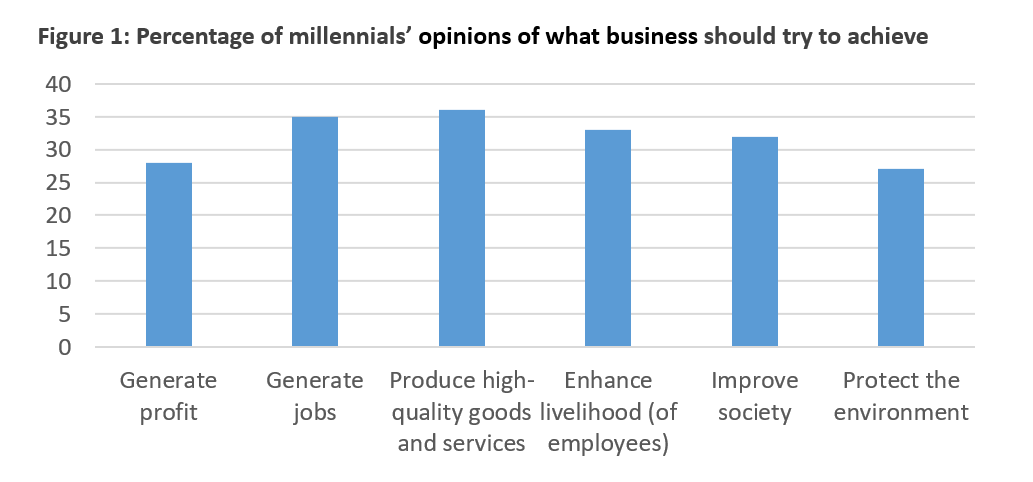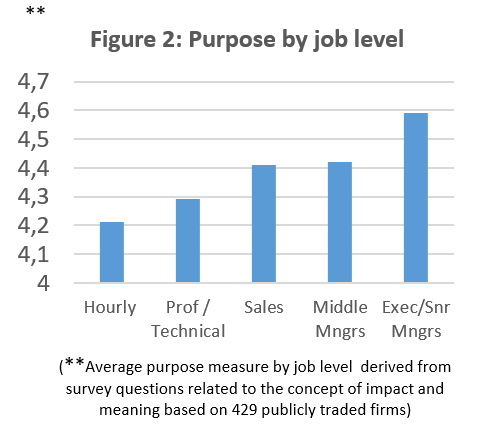How to create purpose-driven organizations?
Executive Factsheet
Recent studies indicate that firms improve their performance when their employees, in particular mid-level managers, believe in the purpose of their organization.
Download the PDF: How to create purpose-driven organizations?
What is a corporate purpose? (1)
Corporate purpose can be defined as “a concrete goal or objective for the firm that reaches beyond profit maximization” (Henderson & Van den Steen, 2015, p. 327). It is a set of common beliefs, shared by the members of an organization and guiding employee actions. In comparison to a company’s mission describing “what” a company does, a corporate purpose explains “why” a company engages in a certain type of organizational behaviour. Yet, a corporate purpose does not necessarily have to be prosocial.
Should companies care?
Recent surveys show that the main concerns of young workers include topics such as climate change, environmental protection, and income inequality. When asked about what businesses should try to achieve, next to traditional business-related objectives, millennials also believe that firms should pursue goals beneficial to society (Figure 1).* Given that millennials alone will make up about 75% of the modern global workforce by 2025, firms ignoring these sustainability issues may find themselves having difficulties becoming or remaining an employer-of-choice in the future.

*Source: The Deloitte Global Millennial Survey 2019
What are the benefits of having a corporate purpose (1)
Studies confirm that firms improve their performance when employees, in particular, mid-level managers next to senior executives believe in the purpose of their organization and when the pathway to reach this purpose is clear. (Figure 2). Higher job performances and stronger organizational commitments have been observed among employees who perceive their work as more meaningful.

How might corporate purpose influence firm performance?(1)
For decades, the only purpose for the most of the companies was to reach their financial objectives and to maximize profits. Nowadays, some scholars argue that having a strong corporate purpose can improve firms’ performance in two ways:
Purpose can drive the employee engagement and this way increase employee effort and productivity.
It can affect external stakeholder groups and, for example, increase customer satisfaction and loyalty.
How can managers create purpose-driven organizations?(2)
Several basic steps may help managers to create purpose-driven organizations:
- Envision an inspired workforce – assess the purpose that drives excellence in your company and imagine how it can permeate the corporate workforce
- Discover the purpose – use tactfulness to gain a better understanding of the common needs of your workforce
- Recognize the need for authenticity – employees detect hypocrisy
- Turn the authentic message into a constant message – look for permanent solutions that ensure commitment
- Stimulate individual learning – implement structures that help employees to reflect on the corporate purpose and be part of it.
- Turn midlevel managers into purpose-driven leaders – they are the backbone of the company
- Connect the people to the purpose – explain how employees’ daily activities are connected to the corporate purpose
- Unleash the positive energizers – identify and support the employees in the firm who naturally inspire others
|
REFERENCES
|